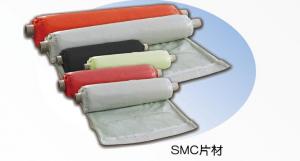Fiberglass cloth is a versatile material that has found its way into various industries, and one of its most prominent uses is in industrial insulation. This incredible material is known for its durability, heat resistance, and chemical stability, making it a top choice for insulation purposes. But what exactly is fiberglass cloth, and how does it contribute to the insulation of industrial equipment? Let’s dive into the world of fiberglass cloth and explore its role in industrial insulation.
The Wonders of Fiberglass Cloth
Fiberglass cloth, also known as glass fabric, is made from woven glass fibers. It is lightweight, yet incredibly strong, and can withstand high temperatures without losing its structural integrity. The material is also resistant to a wide range of chemicals, making it suitable for use in environments where chemical exposure is a concern.
Applications in Industrial Insulation
One of the primary applications of fiberglass cloth in industrial settings is insulation. It is used to insulate pipes, boilers, tanks, and other equipment that operates at high temperatures. The heat-resistant properties of the cloth help to reduce heat loss and maintain the efficiency of the equipment. Additionally, the cloth’s chemical resistance protects the equipment from corrosion and other chemical damage.
Installation and Maintenance
Installing fiberglass cloth for insulation purposes is a relatively straightforward process. It involves wrapping the cloth around the equipment and securing it with clips or adhesive. The cloth can be easily cut to size, making it a versatile option for various shapes and sizes of equipment. Maintenance of the insulation is also simple, as the cloth can be easily cleaned and repaired if necessary.
Benefits of Using Fiberglass Cloth
There are several benefits to using fiberglass cloth for industrial insulation. Firstly, it is cost-effective, as it is relatively inexpensive compared to other insulation materials. Secondly, it is energy-efficient, as it helps to reduce heat loss and maintain the temperature of the equipment. Thirdly, it is environmentally friendly, as it is made from non-toxic materials and is recyclable. Lastly, it is easy to install and maintain, making it a practical choice for busy industrial environments.
Challenges and Solutions
Despite its many advantages, there are some challenges associated with using fiberglass cloth in industrial insulation. One of the main challenges is the potential for fiber exposure, which can cause irritation to the skin and respiratory system. To mitigate this risk, it is essential to follow proper handling and installation procedures, such as wearing protective clothing and using ventilation when working with the material.
The Future of Fiberglass Cloth in Industrial Insulation
As industries continue to evolve and new technologies emerge, the use of fiberglass cloth in industrial insulation is expected to grow. Its versatility, durability, and heat resistance make it an ideal material for various applications. Moreover, with ongoing research and development, we can expect to see improvements in the material’s properties and applications, further enhancing its role in industrial insulation.
In Conclusion
Fiberglass cloth is a remarkable material that has proven its worth in industrial insulation. Its unique properties, such as heat resistance and chemical stability, make it a popular choice for insulating high-temperature equipment. With proper installation and maintenance, the cloth can significantly improve the efficiency and longevity of industrial equipment. As we look to the future, the potential for fiberglass cloth in industrial insulation is vast, and it will undoubtedly continue to play a crucial role in this field.

